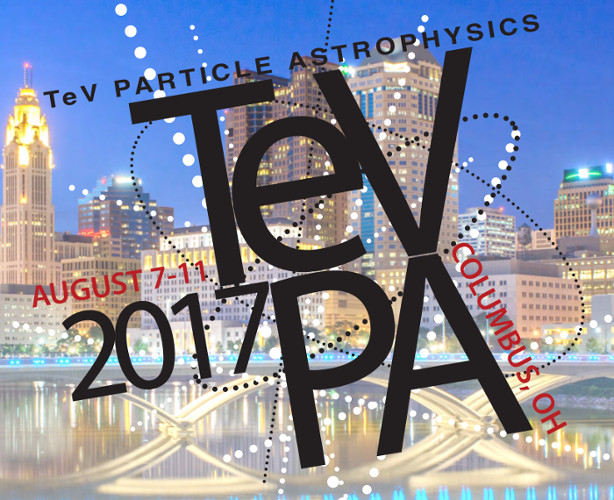Speaker
Description
Type IIn supernovae (SNe) explode in dense circumstellar media that have been modified by the SNe progenitors at their last evolutionary stages. The interaction of the freely expanding SN ejecta with the circumstellar medium gives rise to a shock wave propagating in the dense SN environment, which may accelerate protons to multi-PeV energies. Inelastic proton-proton collisions between the shock-accelerated protons and those of the circumstellar medium can lead to multi-messenger signatures. I will present our results on the diffuse neutrino emission from SNe IIn in comparison to IceCube observations. In particular, SNe IIn could be the dominant component of the diffuse astrophysical flux, only if 4 per cent of all core collapse SNe were of this type and 30 per cent of the shock energy was channeled to accelerated protons. Even more stringent constraints on the acceleration efficiency can be placed by the identification of a single SN IIn as a neutrino point source with IceCube using up-going muon neutrinos.
